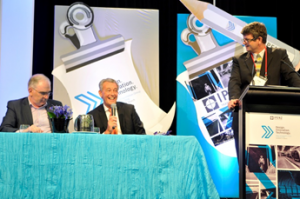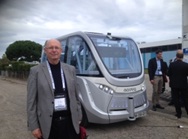This year’s IPENZ Transportation Group technical conference featured a broad range of topics and speakers and a diverse delegate list. Of particular interest to the Resolve Group team were the sessions on innovation, planning and design for cycling; asset management and technology (from big data to the development and potential use of autonomous vehicles (AVs) and co-operative AV networks).
Plenary sessions by Dr Dean Peterson of Callaghan Innovation, Ernst Zollner of NZTA, Peter Clark of Auckland Transport and Richard Paling, Independent Transport Planner and Economist considered the following:
- New technology and innovation provide incredible opportunities at an ever-increasing rate
- There are very significant challenges for us to address in the medium term before we can optimise them
- The excellent outcomes from increased investment in Auckland’s Public Transport network go hand-in-hand with unprecedented projected growth rates for the city in the next decade
- Although un-sexy, freight is one of the most important components of the transport network, which will grow with the population and the economy, and needs to be actively planned for with the use of technology
Plenary sessions by Lester Levy, Chair Auckland Transport Board and Martin Matthews, Ministry of Transport, both looked at trends and visions for the future, along with associated challenges and opportunities.





